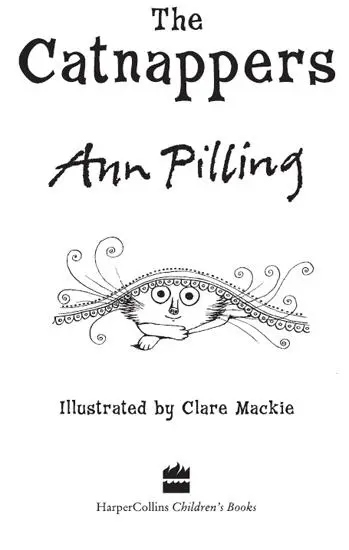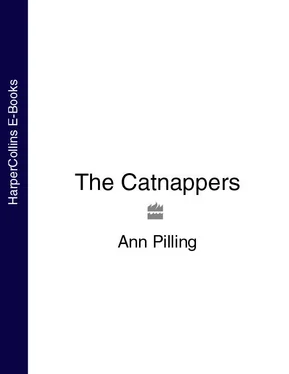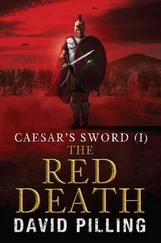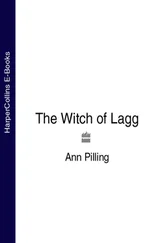
for Vera, his first person singularfor Celia, who did not give up hopeand for Annie, whose cat it was
And in after years, if you would blame
His sadness, he was used to say ,
‘ It’s dull in our town since my playmates left !’
Robert Browning
The Pied Piper of Hamelin
Contents
Cover
Title Page
Dedication for Vera, his first person singularfor Celia, who did not give up hopeand for Annie, whose cat it was
Chapter One
Chapter Two
Chapter Three
Chapter Four
Chapter Five
Chapter Six
Chapter Seven
Chapter Eight
Chapter Nine
Chapter Ten
Chapter Eleven
Chapter Twelve
Chapter Thirteen
Chapter Fourteen
Chapter Fifteen
Chapter Sixteen
Chapter Seventeen
Keep Reading
Also by the Author
Copyright
About the Publisher
Chapter One
Once upon a time there were two old ladies. Their names were Kitty and Miss McGee. Kitty was tall and thin and liked to sit in a tall, thin chair. Miss McGee was little and round and preferred sitting on a plump, soft settee with puffy cushions. Kitty’s real name was Katherine, but Miss McGee called her Kitty. Her own name was Florence, but Kitty called her “McGee”; she only used Florence when she got cross with her, but this didn’t happen very often. It was normally Miss McGee who got cross.
This was because Kitty was a bit vague and dreamy, and went round saying little poems to herself. Her pale, oval face, the exact shape of an egg, was so calm and quiet-seeming that looking into it was like looking into a deep, calm lake.
Kitty and Miss McGee were very old. When they were little girls, there were no televisions or computers or mobile phones. In those days, a cart came along pulled by a little horse, and a man threw the coal for your fire down a hole in the pavement. The streets were lit by pretty lamps, worked by gas, and every night, before the dusk came, another man came round with a long stick and switched them all on. He was called the lamplighter. “Remember the lamplighter, McGee?” Kitty would say dreamily, as they sat in their chairs after tea, watching the darkness fall. “Remember the coalman’s horse?”
But you mustn’t think that Kitty and Miss McGee were two fuddy duddies. It’s true that they didn’t have a television or a computer and their telephone was a very old-fashioned one. It was black and it weighed a ton and it had a loud, clanging bell. But they certainly kept up with things. They listened to the radio and they read the newspapers and they both kept a very sharp eye on what was going on in Golden Square, which was where they lived, at Number 19.
It was called “golden” because in spring the garden in the middle was full of daffodils. This garden was private with black railings all round, stuck with iron spikes, and you got inside by unlocking a gate. The old ladies had a key to it but they didn’t go there much. It felt too lonely, sitting in the garden all by themselves.
Once there had been lots of families living in Golden Square. There had been a little school close by, too, and all the children used to play in the garden. They played hide-and-seek in the shrubbery, they climbed the trees and they skimmed pebbles across the small, round pond. But then the school had closed down and the families had all gone to live in new, shiny houses on the edge of the town. Apart from Number 19, all the houses in Golden Square had been turned into offices for dentists and doctors. In the evening everybody went home and there was silence.
“It’s dull in our town since the children went,” said Kitty to Miss McGee. “Even Debbie Springer seems to have deserted us. I really do miss Debbie.”
Debbie Springer was a little girl whose mum did cleaning for some of the dentists and doctors who had offices in Golden Square. They used to live in a flat in the very bottom of one of the houses, but one day a water pipe burst and there was a flood. The water had turned the bottom of the house all dank and smelly and mould had begun to grow on the walls. But the man who owned it was a bit of a miser and wouldn’t pay anybody to put the house right. So Mrs Springer, who had bright red hair and rather a hot temper, said “Right, then, we’ll go and live somewhere else, somewhere nice and light and airy. You can keep your rotten old flat – we’ll find another place!” And she had marched away with Debbie, refusing to pay the miser his last bit of rent: for which nobody blamed her one bit.
They soon found a new home and it was certainly airy. It was on the very top floor of the Town Flats. These looked a bit like skyscrapers and stood right in the middle of the town, quite dwarfing the Town Hall and the parish church. These were tall buildings but they looked tiny next to the Town Flats. To get to Debbie’s flat you took a lift and whizzed up dozens of floors till you reached the very top. They didn’t have a garden, of course, just a balcony full of plants, and nobody was allowed to have a cat or a dog, not living up there, almost in the sky. It wouldn’t be fair. That was why Debbie had liked visiting the two old ladies who did have a pet.
They tried very hard to keep fit. Kitty tended their tiny garden, Miss McGee did the cooking and they both walked up and down the stairs a lot, because theirs was that sort of house. They also took little walks but they got tired more quickly than when they were young, and soon came home again.
“If only Nicholas could talk,” Miss McGee said wistfully one day. “He takes very long walks: I expect he picks up all the gossip.”
Nicholas was their cat and one of the reasons Debbie had liked visiting the old ladies, on the days when her mum dropped by to do a bit of cleaning for them. This hadn’t happened very often as Mrs Springer had so many other cleaning jobs and needed the money. But she refused to take any from the old ladies because they were her friends and they only had their pensions.
Nicholas was very handsome. He was pale ginger, the colour of a lightly baked biscuit. His fur was soft and fluffy and his tail was fat and plume-like and rather resembled a feather duster.
“Who does your Nicholas belong to then?” said Mr Plackett the postman one day. He liked cats; they didn’t snap at him like dogs did. Nicholas was not only handsome, he was also very friendly; he would talk to anybody.
“He’s both of ours,” explained Miss McGee. “We share him.”
“But who owns the tail end?” said Mr Plackett. “That’s the bit I’d like. I mean, you could dust all the cobwebs away with a tail like that. You could just tuck him under your arm, and get to work.”
“Nobody owns it,” Kitty told him rather coldly. She was alarmed at the idea of using Nicholas’s tail to clear cobwebs. “And nobody owns him. You can’t own a cat. Nicholas belongs to himself alone.”
“Don’t get it,” grunted Mr Plackett, walking off down the path. But Kitty wasn’t listening. “The tail of Nicholas is the glory of God,” she murmured. It was one of her poetry things.
It was certainly true that Nicholas was for ever going out, in fact, he was very sociable, and sometimes he did very bold things. Once, seeing a tasty-looking bird, he leaped from a first-floor window right down into the square, to try and catch it. He could have been squashed flat, but he wasn’t. You probably know that a cat has nine lives. Well that day, Nicholas certainly lost one of them.
But there was one thing that always frightened him. If ever he heard a loud noise, he went pelting off to hide in some very secret place where he stayed for ages and ages – sometimes for hours.
Читать дальше













